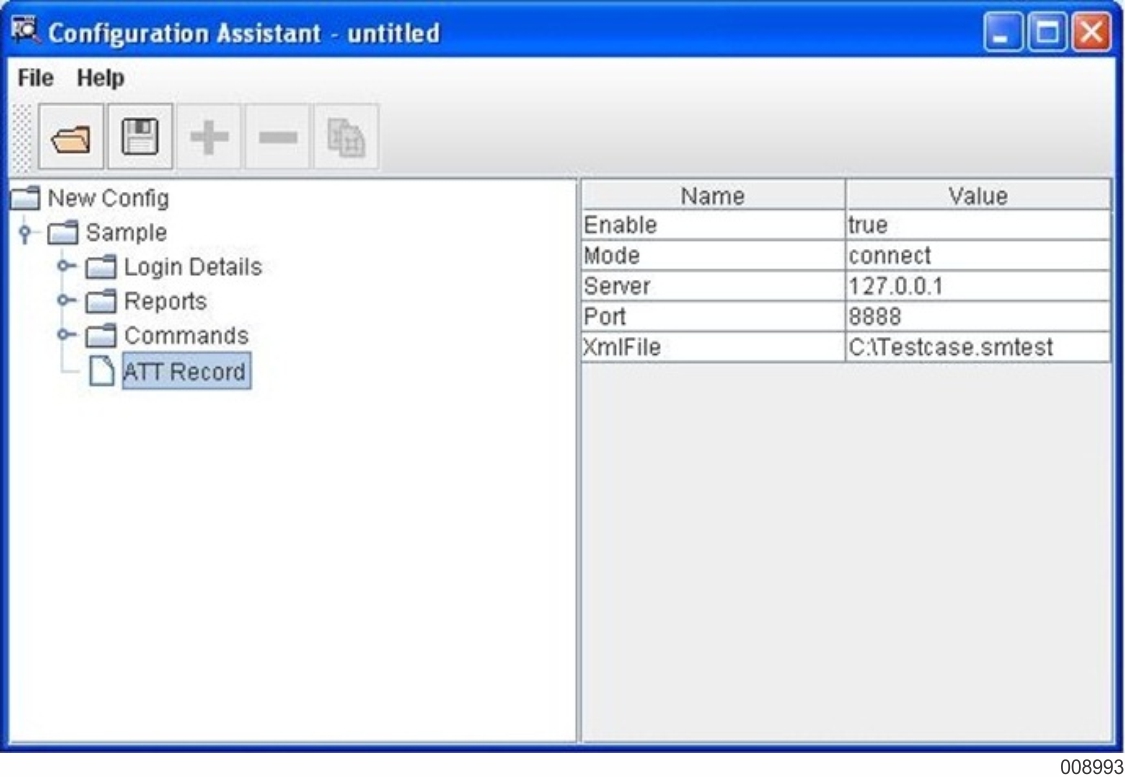There are two ways to configure the Java-based Presentation Client.
Open and edit the config.xml file directly using a text editor.
Open the Configuration Assistant and edit the configuration file. The Configuration Assistant is installed with the Component Enabler (CE) Development Environment with the path, C:\NGEN_CE.
Note: Although the Presentation Client generates Java IspecModel files to record, always ensure that C# IspecModel files are generated to play back the recorded files. Since C# IspecModel files are used to play back, it is a good practice to generate Java and C# IspecModel files to avoid any problem.
Using the Configuration File
Find the entry <ATTRecord> </ATTRecord> and set the following parameters:
| Parameter | Description |
|---|---|
| enable | Specifies whether recording is enabled. Set this to true to enable recording. |
| mode | Specifies whether you want to record in the Connect or Disconnect mode. |
| server | Specifies the socket server being used to connect. Configure this value based on your socket server setting. |
| port | Specifies the Port being used to connect. Configure this value based on your port setting. |
| xmlFile | Specifies the path and name of the file into which the test case is recorded when the record mode is set to Disconnect. |
Note: The <xmlfile> </xmlfile> tag specifies the path and name of the recorded file when you record in the Disconnect mode.
The following is an example of the configuration set in config.xml to enable recording in the Connect Mode with the Presentation Client:
<attRecord> <enable>true</enable> <mode>connect</mode> <server>127.0.0.1</server> <port>8888</port> <xmlFile>c:\temp\testcase.smtest</xmlFile> </attrecord> |
Using the Configuration Assistant
The Configuration Assistant is installed with the Component Enabler Development Environment enabling you to edit the application configuration file.
Point to the bottom-left corner of the screen for Windows Server 2016, and click the Start button.
The Start screen appears with the list of applications.
Click Configuration Assistant or type Configuration Assistant on the desktop. You can also right-click the Start screen and click All Apps for the list of applications.
